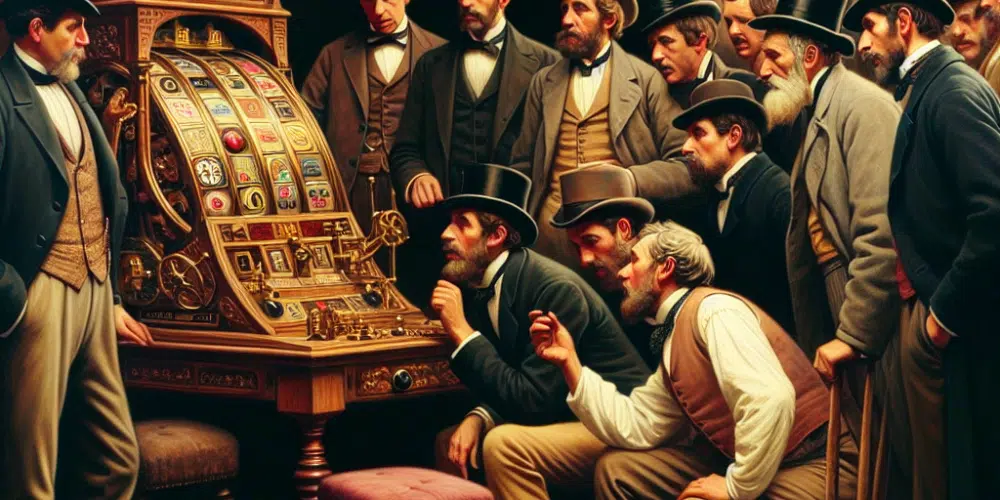Victorian football clubs, from the AFL to grassroots levels, have seen their pokies venues cost players more than $110 million in the past financial year. This staggering figure reignites the debate over the sport’s financial reliance on gambling revenue and raises questions about its impact on local communities.
The Victorian Gambling and Casino Control Commission has released data showing that during 2024–2025, football club venues contributed to $110.4 million in player losses, averaging about $300,000 a day. These figures, reported by Australian news outlet ABC, highlight the ongoing financial ties between the sport and gambling.
Advocates for gambling reform argue that football clubs cannot claim to uphold community values while profiting from gambling, which they argue is harmful. Tim Costello, representing the Alliance for Gambling Reform, warned that clubs promoting family-friendly values but benefiting from poker machine revenues risk losing public trust. He emphasized that the increasing evidence connecting gambling losses with financial instability, family breakdowns, and criminal activities cannot be ignored.
Among AFL clubs, Carlton, Essendon, Richmond, and St Kilda are significant players in the pokies revenue game, with their combined venues resulting in $40.4 million of player losses. Carlton’s venues alone accounted for nearly half of this amount, showcasing their reliance on such revenue streams. Additionally, Victorian Football League clubs, including Werribee, Williamstown, and Port Melbourne, reported combined losses exceeding $35 million, with Werribee’s two venues being the most influential contributors.
This raises a critical debate about the social responsibility of sporting organizations, especially as smaller clubs and regional leagues also report substantial earnings from pokies. Last year, nine local clubs and associations collectively generated $34.6 million. Vermont Football Club led this group, with player losses reaching $11.6 million. Other clubs in Northcote, Warrnambool, and Hamilton followed closely behind.
Bree Hughes, an advocate who has overcome gambling addiction, voices deep concern over the situation. Having experienced firsthand the devastating impact of pokies, which resulted in imprisonment, Hughes now campaigns for substantial change. She argues that it is fundamentally wrong for football clubs to profit from activities that destroy lives, undermining the very essence of what sports should represent.
The issue extends beyond individual clubs to a broader statewide concern, with gambling losses in Victoria hitting record highs of $3.1 billion in 2024–2025. Many communities are witnessing peak losses, intensifying the call for reform. While some AFL clubs, such as North Melbourne and Hawthorn, have taken steps to distance themselves by selling off their poker machines, others remain hesitant, citing financial dependency.
Tim Costello, along with other reform advocates, insists that clubs must explore alternative revenue sources that do not involve gambling. They argue that until such changes are made, football’s unifying role within communities will be overshadowed by its connections to an industry that inflicts significant social harm.
However, not everyone agrees that cutting ties with gambling is the right solution. Some club officials argue that the funds generated from pokies are essential for maintaining club operations and supporting local sports initiatives. They fear that losing this income could negatively affect community programs, player development, and the overall viability of some clubs. This viewpoint suggests that a complete divestment from gambling revenue might have unintended consequences on the sport’s grassroots level.
Ultimately, the debate surrounding Victorian football clubs and their relationship with pokies is a microcosm of a larger societal struggle to reconcile financial necessity with ethical responsibility. As discussions continue, stakeholders from various sectors are compelled to consider innovative funding models that align with community values without compromising the financial health of the sport. The controversy remains a significant point of contention, reflecting broader societal concerns about the role of gambling in public life.

David Harrison stands tall in gambling journalism, marrying his firsthand casino experiences with a deep understanding of betting psychology. His articles transform complex gambling jargon into engaging tales of strategy and chance, making the world of betting accessible and enjoyable. David’s knack for narrative extends beyond print, making him a sought-after speaker on gambling trends and future bets. In the realm of gambling, David is both a scholar and a storyteller, captivating readers and listeners alike.
















